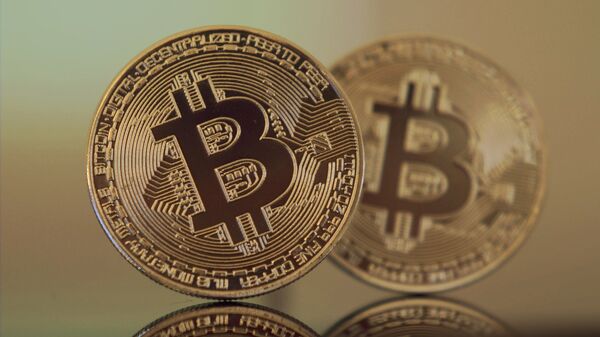Sputnik: Are cryptocurrencies working on the blockchain any more vulnerable to hacking than traditional fiat currencies?
Iwa Salami: The blockchain technology behind the cryptocurrencies is a brilliant thing. It has the potential to facilitate commercial transactions, and also can be used in a great variety of ways to enhance commercial transactions, to make them quicker and more efficient. So the technology itself is not the problem, the issue is that when the blockchain is used to facilitate decentralized cryptocurrencies, it becomes an issue when those currencies can be used to facilitate illegal activities.
There is evidence that cryptocurrencies such as Bitcoin and Monero are used to facilitate criminal activities on the dark web. So things like drug sales- and there is growing evidence towards these cryptocurrencies facilitating money laundering. Very recently, as well, it has been revealed that these currencies can be used to facilitate terrorism financing. The financial actions have been enforced with evidence that Bitcoin has been used to facilitate terrorism financing activities.
READ MORE: 'Hacks Can Be Prevented If Companies Test Product Before Launching' — Consultant
Now these technological innovations operate in such a way that hides the identity of the individuals making the transactions. Therefore the anonymity represents a problem.
Sputnik: Where do the vulnerabilities stem from?
Iwa Salami: Regarding the vulnerability of fiat as opposed to crypto- it really depends what a cryptocurrency actually is- are they files, are they digital information?— They can be described as digital data, which of course then makes them susceptible to hacking, and thieving. Therefore if we have cryptocurrencies, Monero, XEN and bitcoin, their vulnerability toward hacks is a huge possibility, it happens, and it did so in this instance. It leads us to the next point, how then should investors protect themselves? In the instance of Coincheck, we know that there are about 260,000 customers affected.
READ MORE: 'Good B': Ethereum Rating Soars Above Bitcoin on Agency Report
To date, we are not sure if Coincheck has the funds to pay the customers back. Because of that, we could be looking at a potential bankruptcy situation for this exchange. This leaves the investors very open to loss. The question is really, how are investors protected when this kind of hack takes hold? This is where we need regulation, to protect the investors.
Fortunately, Japan is one of the few jurisdictions where cryptocurrency exchanges are regulated. Because cryptocurrencies are digital assets, they are susceptible to things that can happen to digital information and data. With respect to the criminal activities happening, and the use of digital currencies to facilitate crime, financing drugs, terrorism, etc., they operate on a cross border basis.
Whether we are looking at money laundering, or drug sales, it becomes very important that in order to be able to investigate as well as prosecute criminal activities, there is a dire need for international corporations and international law enforcement agencies, financial intelligence units to pull together to be able to monitor and control these criminal activities.
Sputnik: The stolen NEM coins have now been rendered useless, because they have been traced. If the hackers try to use them, then the authorities will be alerted. Is this a benefit to cryptos, in contrast to fiat currencies?
Iwa Salami: I think this is a good thing. There are ways that this could have been avoided. We are told that the cryptocurrencies were stored in 'hot storage', which basically mean they were stored online, and were accessible online. It's usually advisable that cryptos are stored in 'cold storage', offline. That way they cannot be hacked so easily.
READ MORE: Bitcoin Foundation to Sputnik: Cryptocurrencies No Bubble, But Set to Trade Down
In regards to the Coincheck case, what has happened is that other exchanges have been alerted about the type of cryptocurrencies, they will be alerted if those cryptocurrencies are used in other exchanges, then they will be identifiable, that is a good thing. With this, if it can be adopted for all the other types of cryptocurrencies then that would be great. If they can all be identified immediately if they are stolen then that would be a brilliant thing. If there is a mechanism in which exchanges can be regulated, and if currencies can be stored in cold storage then that would also be good.
The views and opinions expressed by Iwa Salami are those of the speaker and do not necessarily reflect those of Sputnik.



